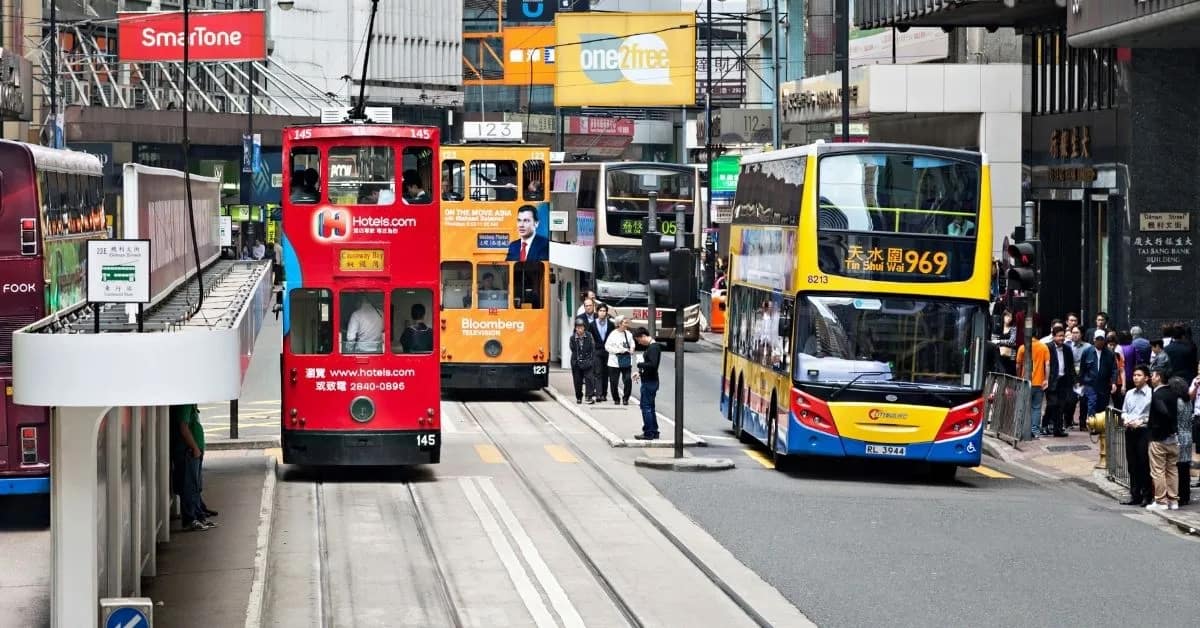Introduction
Setting out on any journey – be it across continents or just for an exciting weekend getaway – can be exhilarating; uncovering new cultures, landscapes, and perspectives along the way is always exciting and humbling all at the same time! However, travel comes with its share of responsibility: being thoughtful and informed helps us, and those we visit enjoy their travel experiences to their fullest.
This guide presents the Do’s and Don’ts of Travelling, offering essential tips for an effortless travel experience. These guidelines address carefully planned journeys incorporating cultural sensitivity, eco-friendliness, and emergency preparedness – necessary for global traveling success!
Now is the time to buckle up literally and metaphorically as we embark on this voyage together to become well-rounded travelers who respect both themselves and those they encounter.
1. Do’s of Traveling
A. Research and Planning: Mapping out Your Path
Before embarking on an unfamiliar trip, please make the most out of its heritage by extensively researching local customs, attractions, and potential challenges. Create a flexible itinerary that accommodates spontaneous decisions while guaranteeing no must-see experiences are missed; doing this research increases your knowledge and makes the journey much smoother!
B. Packing Essentials: Master the Art of Preparation
Packing efficiently is an art unto itself; success lies in packing efficiently. Consider both cultural norms and weather when packing clothing according to weather patterns; don’t leave behind essential travel documents like passports and itineraries, plus prepare an emergency medical kit with medications as required – by packing well you not only lighten your load but are ready for anything life throws your way! Pack smart!
C. Cultural Sensitivity: Bridging the Gap
Cultural immersion is at the core of meaningful travel experiences. Master basic phrases in your host country’s native tongue; greeting people or saying thank you can open doors and hearts alike. Respect local customs and traditions while adapting your behavior to integrate seamlessly within their community – this helps strengthen bonds while showing appreciation for its rich tapestry of history and diversity.
D. Safety Measures to Secure Your Journey
Travel is exciting and memorable, yet your safety should never be taken for granted. Keep an eye out for potential dangers around you; protect your valuables with lockable compartments; familiarize yourself with local laws to stay in tune with them all – remaining vigilant will allow you to focus more on exploring rather than on potential pitfalls!
These Do’s are an indispensable road map that will lead you towards enjoyable travel experiences that bring true meaning.
2. Don’ts of Traveling
A. Over-Packing: Reduce Extra Luggage
At times, the excitement of traveling may cause us to over-pack; therefore, try not to bring every unnecessary item. Prioritize essential climate-specific things when packing light while leaving some space for souvenirs when lightening our load; streamlining luggage can lessen its physical weight and let us fully enjoy every journey without feeling burdened by unnecessary bags.

B. Ignoring Local Customs: Proceed With Caution
Disrespect for local customs is one of the most significant offenses when traveling. Be mindful when dressing to fit local culture; wear modest and suitable attire when visiting religious or sacred sites; and be polite when discussing behavioral norms you observe to promote harmony among communities called by you.
C. Engaging in Disrespectful Acts to Achieve Cultural Integrity.
Cultural appropriation and inappropriate photography can have a devastating impact on your travel experience. Make sure not to adopt elements from another culture without first understanding their significance, and always ask permission before photographing individuals without first seeking prior consent from them. By upholding cultural integrity, you help foster mutual respect between cultures while contributing positively towards creating global traveler images.
D. Neglecting Health and Safety: A Gamble Not Worth Taking
Be mindful of protecting your health and well-being during an adventure by being aware of travel advisories, adhering to recommended vaccination schedules, and being careful when eating or drinking anything during a journey. Failing to do so could turn an exciting journey into a medical crisis – reinforcing why maintaining an attentive approach toward well-being should always come before taking an exciting trip abroad.
In addition, understanding the do’s and don’ts of travelling is essential. Travel etiquette requires following certain do’s and don’ts that act as cautionary tales against possible dangers and mistakes that might occur to travelers during their trips.
3. Transportation Etiquette
Understanding transportation etiquette is integral to an enjoyable travel experience – flying across the sky or driving down city streets. Let us examine some nuances regarding courteous and considerate behavior in transit systems.
A. Airport and Airplane Etiquette: Elevating the Journey
- Security Procedures: Patience is paramount at airport security. Make sure to comply with instructions regarding removing liquid and electronic items for an easy journey for yourself and other passengers.
- Being Mindful of Fellow Passengers: Airplane cabins require passengers to remain mindful. Keep noise levels to an absolute minimum, respect personal space, and recline carefully while considering those behind you. These small gestures can significantly affect overall passenger comfort on board.
B. Public Transportation: Navigating With Courtesy
- Be Kind on Public Transit: Whenever traveling on buses, trains, and subways, be mindful of offering your seat to those most in need, such as older individuals, pregnant women, or people with disabilities – even this small gesture helps foster an inclusive travel environment.
- Noise and Personal Space: Headphones can make excellent travel companions when visiting shared spaces, providing privacy by keeping personal conversations and electronic devices to an inaudible volume and respecting others’ personal space in such a manner that allows an enjoyable travel experience for everyone involved.

Understanding and practicing transportation etiquette adds enjoyment to one’s travel experience and fosters an effective communal atmosphere.
4. Environmental Responsibility
Travel is more than a way to explore new worlds – it should also be environmentally responsible! Let’s find ways to engage in sustainable travel, experiencing global adventures while minimizing our environmental impact.
A. Sustainable Travel: Minimising Our Footprint
- “Sustainable Travel” involves minimizing plastic usage by investing in a reusable water bottle and eco-friendly alternatives for single-use plastics en route, serving as an example to other travelers along your travel route. This not only lessens environmental impacts but is an outstanding example.
- Respect Wildlife and Nature: To conserve nature for future travelers and residents, practice sustainable travel by keeping a safe distance from wildlife, and avoid disturbing its habitats to preserve character for future travelers and inhabitants alike. Engaging responsibly with nature ensures its preservation for future generations alike.
B. Ethical Decisions: Supporting Local and Sustainable Initiatives
- Engaging in Responsible Tourism: Make choices regarding accommodations, tours, and activities that prioritize environmental sustainability and community wellbeing while supporting local businesses to foster economic expansion in regions you visit.
- Mindful Consumption: Be conscious about what and how you consume; try purchasing local goods whenever possible and minimize wasteful packaging when buying souvenirs; be deliberate about reducing environmental impacts associated with every choice you make, from food to souvenir purchases, promoting Sustainable Travel.
Travel is an invaluable force in shaping our shared planet’s future, and by practicing environmental responsibility when traveling, they not only preserve beautiful locations they visit but also contribute to an international movement for responsible ecotourism travel.
Next time, we will explore practical communication tips that bridge language barriers while creating bonds across cultures and increasing understanding. Don’t miss out; stay tuned – you won’t be disappointed! We promise not!
Language can be invaluable when it comes to responsible travel. Here is some insight on the Do’s and Don’ts of Travelling in this matter.
5. Communication Tips
Communication is at the core of global travel. Here are a few valuable guidelines that will enhance your ability to connect and exchange messages while roaming abroad effectively.
A. Language Barriers: Understand Basic Concepts
- Language Acquisition: While becoming fluent may prove daunting, learning just a few essential phrases from a local tongue will go a long way toward showing appreciation and respect for its culture. Learn greetings, thank-you, and polite expressions quickly to show that effort was put into adjusting rapidly to local norms and customs.
- Use translation apps: Translation apps can be invaluable tools in our digital era, offering real-time translation assistance that makes navigating menus, signs, and conversations simple. Download an effective translation app that provides real-time services to guarantee seamless menus, posters, and discussion navigation!
B. Non-Verbal Communication: The Power of Gestures
- Cultural Sensitivity in Gestures: Be wary of gestures specific to certain cultures, as what might seem harmless could mean different things depending on which country of origin – though smiles tend to be appreciated and understood universally!
- Body Language Awareness: Consider how nonverbal cues may reveal more information than verbal ones. Maintain friendly postures while keeping an observant eye open for cues on how best to respond in various scenarios.
Effective communication lies at the core of all enjoyable travel experiences. Through language study, clever use of technology, and being attuned to nonverbal cues, you not only ensure smoother interactions but can forge relationships across language barriers as well.
Stay tuned as we examine the importance of health and wellness during travels – from hygiene practices to food safety issues – and explore the Do’s and Don’ts of Travelling, examining how prioritizing our wellbeing improves overall travel experiences. Don’t miss this informative series about staying healthy on the road!
6. Health and Wellness
While exploring, our physical well-being must always remain top of mind. Let’s examine some essential practices that ensure this remains so.
A. Hygiene Practices: Cleanliness on the Road
- Cleanliness in Accommodations: When arriving at your accommodations, take the time to assess its cleanliness – be it cleaning surfaces and inspecting bed linens, as well as familiarizing yourself with its hygiene standards.
- Keep Your Hygiene Routines Upholded: Stay on top of your hygiene regardless of where life may lead you by carrying travel-sized toiletries, hand sanitizers, and wet wipes; these items enable quick freshen-up sessions whenever life happens!
B. Food and Water Safety: Savoring Safely
- Dining Options: Visit established eateries specializing in cooked-over fast foods like pizza for optimal dining selections. Street food may provide added enjoyment as long as it’s prepared and served hygienically.
- Water Consumption: When traveling in areas where tap water quality may be questionable, always opt for purified or bottled water instead. It is advisable to be wary when adding ice cubes to beverages as this could become a potential source of contamination.
C. Mental Health Awareness: Finding Balance on the Road
- Rest and Recovery: Travel can be thrilling, yet it is equally essential to get adequate restorative sleep so both body and mind remain refreshed after each journey. Make sure that both are taken into consideration for every journey!
- Adaptability: Travel requires that we remain adaptable in the face of challenges as we go along our journey; being adaptive helps maintain an upbeat mental attitude, contributing positively to an adventure journey’s overall wellness.
By prioritizing hygiene, making thoughtful dining selections, and maintaining both physical and psychological well-being while traveling abroad, you will maximize the joys that travel has to offer. Stay tuned as we cover emergency preparedness as an integral component of the successful journey!
7. Emergency Preparedness
Travel is often filled with memories of adventure. Accidents occur occasionally; therefore, being prepared is practical and responsible for safeguarding safety and peace of mind during adventures. Being adequately equipped allows travelers to embrace every experience on an adventure travel journey fully.
A. Knowing Emergency Contacts: Building a Safety Net
- Get Familiar With Local Emergency Numbers: It is of utmost importance to familiarise yourself with emergency numbers at your destination in case an unexpected crisis arises since accessing authorities quickly could make all the difference during times of trouble.
- Embassy or Consulate Information: It is wise to keep contact details for the Embassy/Consulate of your nation handy as this could prove essential in an emergency – from misplaced passports to more catastrophic events.
B. Having a Backup Plan: Contingencies for a Smooth Journey
- Secure Digital Copies of Essential Documents: Scan and store digital copies of essential documents such as your passport, travel insurance policy, and itinerary to speed resolution in case the physical versions become lost or stolen. Quickly accessing them could save time in dealing with potential issues in their resolution process.
- Emergency Kit: Be prepared for unanticipated events by carrying an emergency kit with basic first-aid supplies, essential medications, and a flashlight. Such a necessary pack on hand could prove vital should the unexpected strike!
C. Staying Informed: A Watchful Eye on Current Events
- Stay Informed of Current Events and Travel Advisories: Being up-to-date with local events and travel advisories will allow you to adjust your plans as necessary, potentially averting potentially hazardous scenarios.
- Communication Devices: For emergency preparation purposes, always carry an effective form of communication, such as a fully charged cellphone or satellite phone, in remote areas. Being able to reach out for help quickly is of utmost importance, and this type of device will keep the lines of communication open at any given moment in an emergency.
Before embarking on any global travel adventure, arming yourself with knowledge, resources, and contingency plans is critical in managing potential challenges effectively. On our next exploration trip, we’ll investigate the Do’s and Don’ts of Travelling, including responsible travel etiquette; here, we’ll outline its core principles that contribute to safe worldwide explorations – so stay tuned!
I want a copy of that list so I don’t lose track of who sent what information.
FAQ of the Do’s and Don’ts of Travelling
Question 1.: To ensure a pleasant travel experience, what are some essential do’s and don’ts for smooth journey?
Answer: For optimal success during travel, prioritize careful trip planning, respect local customs and maintain open dialogue to create an enriching travel experience.
Question 2.: To avoid common travel pitfalls, what are some key do’s and don’ts I should keep in mind when packing for my trip?
Answer: Avoid over-packing, be sensitive to cultural sensitivities and refrain from engaging in activities which could compromise either your own or local environment safety.
Question 3.: Does respecting local customs and etiquette while traveling make a difference?
Answer: Respect for local customs is of the utmost importance in order to show cultural sensitivity while making your journey less daunting.
Question 4.: How can technology enhance my travel experience?
Answer: Leverage technology for navigation, translation and staying in touch while traveling – but be wary of over-relying on it; technology glitches may occur and therefore it’s essential to maintain situational awareness when using technology effectively.
Question 5.: Should travelers be aware of any specific health and safety do’s and don’ts?
Answer: Yes. Prioritize personal hygiene, exercise caution when eating street food, stay hydrated and familiarize yourself with emergency procedures. Likewise, refrain from engaging in excessive risk-taking, disobeying local health advisories or disregarding your well-being during travel.
Conclusion
Our journey into the Do’s and Don’ts of Travelling comes full circle; here, at its conclusion, lies both exploration and respect, adventure and responsibility. Responsible travel goes beyond being an individual act – it represents collective efforts toward protecting Earth’s beauty while cultivating mutual respect among its inhabitants. Every thoughtful choice contributes to this global movement towards more eco-friendly, harmonious ways of exploring.
Before embarking on your next travel experience, include sustainable travel practices as part of your suitcase. Make your footsteps speak of mutual respect, understanding, and accountability toward protecting our shared Earth.
Have a safe journey and may it be as rewarding to both you and the places you visit!






1 thought on “7 Do’s and Don’ts of Travelling: Tips for a Memorable Trip in 2024”
Comments are closed.